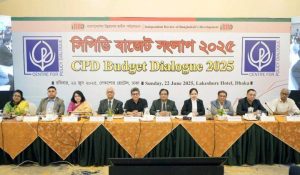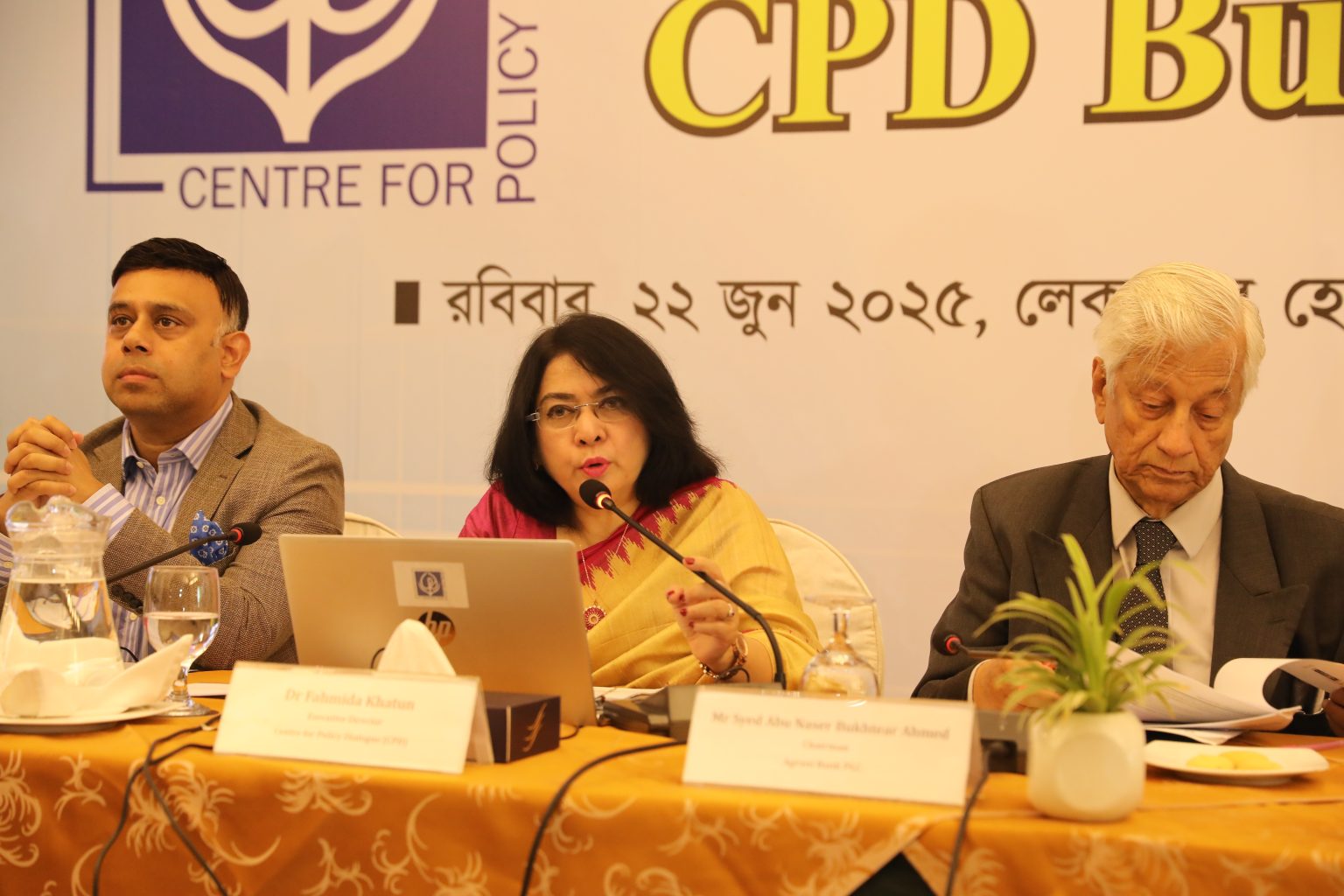The Centre for Policy Dialogue (CPD), a Dhaka-based think tank, has warned that the proposed national budget for FY2025–26 fails to adequately respond to Bangladesh’s current economic challenges, offering little meaningful relief to citizens or the business community.
“On the contrary, several fiscal measures are at odds with the central theme of the FY2025–26 budget—‘Building an Equitable and Sustainable Economic System’,” said CPD Executive Director Dr Fahmida Khatun.
She made the remarks on Sunday while delivering the keynote presentation at the CPD Budget Dialogue 2025: An Analysis of the National Budget for FY2025–26, held at a city hotel.
Dr Khatun noted that while the budget is unique in that it is smaller than the previous year’s and ostensibly prioritises people over infrastructure and development over growth, the financial measures proposed fail to substantiate these goals.
She did, however, acknowledge several constructive elements in the budget, including tax reliefs, sectoral incentives, increased taxes on harmful practices, and enhanced allocations for some areas.
As the interim government prepares to finalise the budget, she emphasised the need for efficient implementation. “A mid-term review should be undertaken to assess execution and introduce necessary corrections,” she recommended, stressing the importance of transparency and accountability.

Dr Khatun criticised the overly optimistic macroeconomic projections and questioned the viability of the proposed fiscal framework. She said spending priorities remain misaligned with the country’s strategic needs, the Annual Development Programme (ADP) continues to follow outdated patterns, and inflation control measures are insufficient. Domestic and import-substitution industries, she warned, may suffer from fiscal disadvantages.
She further observed that social sectors remain underfunded, and although youth and employment have received some attention, issues such as climate change and gender equality continue to be neglected. She also flagged growing pressure on revenue mobilisation efforts.
Among the few encouraging signs, she highlighted increased allocations to ministries working on youth and employment. The Ministry of Youth and Sports is set to receive Tk 2,423 crore in FY2026—a 53.2% rise from FY2025—marking its highest-ever budget allocation (0.307% of the total national budget). The Ministry of Labour and Employment will receive Tk 438 crore, up 26.6% from the previous year.
However, Dr Khatun criticised the project-wise distribution of funds, noting a disproportionate emphasis on physical infrastructure. Projects focused on training and skills development remain underfunded, while some potentially impactful schemes have not received approval at all.
As an example, she cited the still-unapproved project titled “Working Environment and Social Protection for Workers in the RMG and Leather Industries.”
She also pointed out that, despite being mentioned in the finance minister’s speech, no funds have been allocated for a proposed three-year training and self-employment programme for families affected by the July uprising.
Furthermore, she criticised the Tk 100 crore allocation for a youth festival, calling it poorly defined and lacking justification, thereby increasing the risk of fund mismanagement.
The event was chaired by CPD Distinguished Fellow Professor Mustafizur Rahman.


